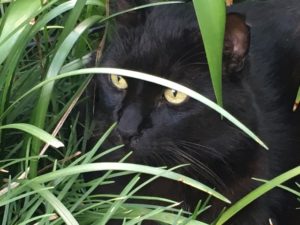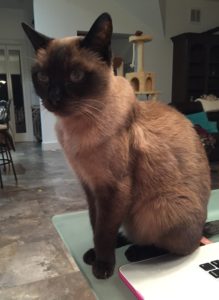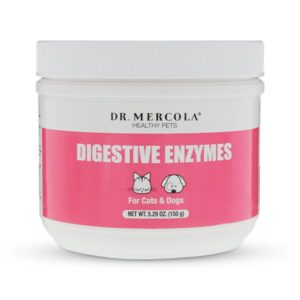Pancreas Problems

BBC
Pancreatitis in Cats
My friend Martin’s cat, BBC (short for Big Black Cat), recently visited the vet with tummy trouble, and after blood work was done he was diagnosed as having pancreatitis. It’s actually a pretty common disease in cats. Years ago our cat, Hershey, threw up something, and with it came a bunch of yellow liquid. Then he lost his appetite, and no amount of treats or coaxing would work. Ugh. When your cat won’t eat things can become dicey.
The trip to the vet resulted in a diagnosis of pancreatitis, and we were sent home with some medicine for nausea and an antibiotic, if I remember correctly. He recovered quickly, got his appetite back, and life went on. Until four weeks later it happened again. The vet refilled the meds, and life went on. Until it happened again, four weeks later! (I can’t make this stuff up!) This time the vet suggested I go see a specialist at Gulf Coast Veterinary Services, our local specialists hospital for animals here in Houston. Translation: $$$$$. I not only had dollar signs dancing in my head, I knew they would just run the same tests the vet had already done and suggest Hershey go on medicine for the rest of his life. Not acceptable! I knew there had to be a better way.
I reached out to our Naturapath, Sonya, at Heights of Health and made an appointment for Hershey. By muscle testing she was able to determine he had pancreatic flukes (parasites) that had settled in his pancreas, and they were making him sick. One round of herbal medicine and a technique called ECR (Energetic Cellular Release) cleared this up, and I am happy to report he’s only had maybe three mild bouts of pancreatitis over the past 6 years, mainly due to eating pine needles in the courtyard. 😡 At the time he had been eating a kibble diet all his life. We transitioned him to a grain-free, wet diet a short time later.

Hershey
Why do cats get pancreatitis to begin with?
According to Dr. Karen Becker, DVM:
Pancreatitis is inflammation of your pet’s pancreas that can disrupt its normal functions. This is often a serious issue, as the pancreas has two vital functions: it secretes insulin, which balances blood sugar, and it secretes digestive enzymes — amylase, lipase and proteases.
Fever, lethargy, dehydration, abdominal pain, anorexia, vomiting and diarrhea in both dogs and cats can all have roots in pancreatitis.
What’s even more interesting about pancreatitis is that inflammation of the pancreas can be very, very mild or it can be extremely life-threatening and even fatal in some cases.
She also suspects that because pets eat so much processed food, aka: kibble, which is high in carbohydrates and void of naturally occurring digestive enzymes, it’s extremely taxing on the pancreas. Certain drugs and high fat diets have also been linked to causing pancreatitis. Oh, and by the way, it isn’t likely a one-time issue–it reoccurs!
Best “insurance” for cats with pancreatitis
If your cat has been diagnosed with pancreatitis Dr. Becker recommends “you should seek medical attention — especially if your pet is vomiting, lethargic, dealing with anorexia or has a fever. After the crisis has passed, the very best “insurance” that you can buy to lower your pet’s chances of having a repeat episode is to supply them with a rich source of digestive enzymes. We know that dogs’ and cats’ pancreases cannot secrete enough digestive enzymes to adequately process their foods. Dogs and cats were meant to acquire supplemental enzymes from the foods they consumed: living foods that contained abundant enzymes.”
Sometimes I use Gerber Baby food meat with Hershey if his stomach is a little upset and he turns away from his normal food. I mix in some enzymes, and he usually licks it all up. I also muscle test to see if he needs a little extra support for his pancreas, and if so, I mix in some PancreaForce by Energetix. Sometimes it takes one or two mealtimes before he is back to normal again. The baby food has been a lifesaver when he won’t eat anything else. I’m happy to report we have not had to take another trip to the vet for pancreatitis in over six years!
Start by changing your cat’s diet
Eliminating or at least reducing the amount of processed food your cat eats is a proactive way to avoid developing pancreatitis to begin with. If your cat eats a processed kibble or canned food diet try to add in some fresh raw or freeze-dried food to alleviate some of the stress the pancreas undergoes during digestion. Seeking out a natural health practitioner to eliminate other possible causes can also be very helpful. 
I started adding digestive enzymes to Hershey’s food a few years ago after learning that cats who have had bouts of pancreatitis benefit greatly from these. So remember: eat cleaner and add digestive enzymes!
There are several great brands of digestive enzymes for pets out there. I started using Healthy Pets Digestive Enzymes for Hershey and Rocket so I recommended them to Martin for BBC. Now his meals come with a little sprinkle of enzymes mixed into his food, and he is none the wiser! I’m sure BBC’s tummy troubles will soon be tamed.
Don’t miss out on our posts! Sign up here.

